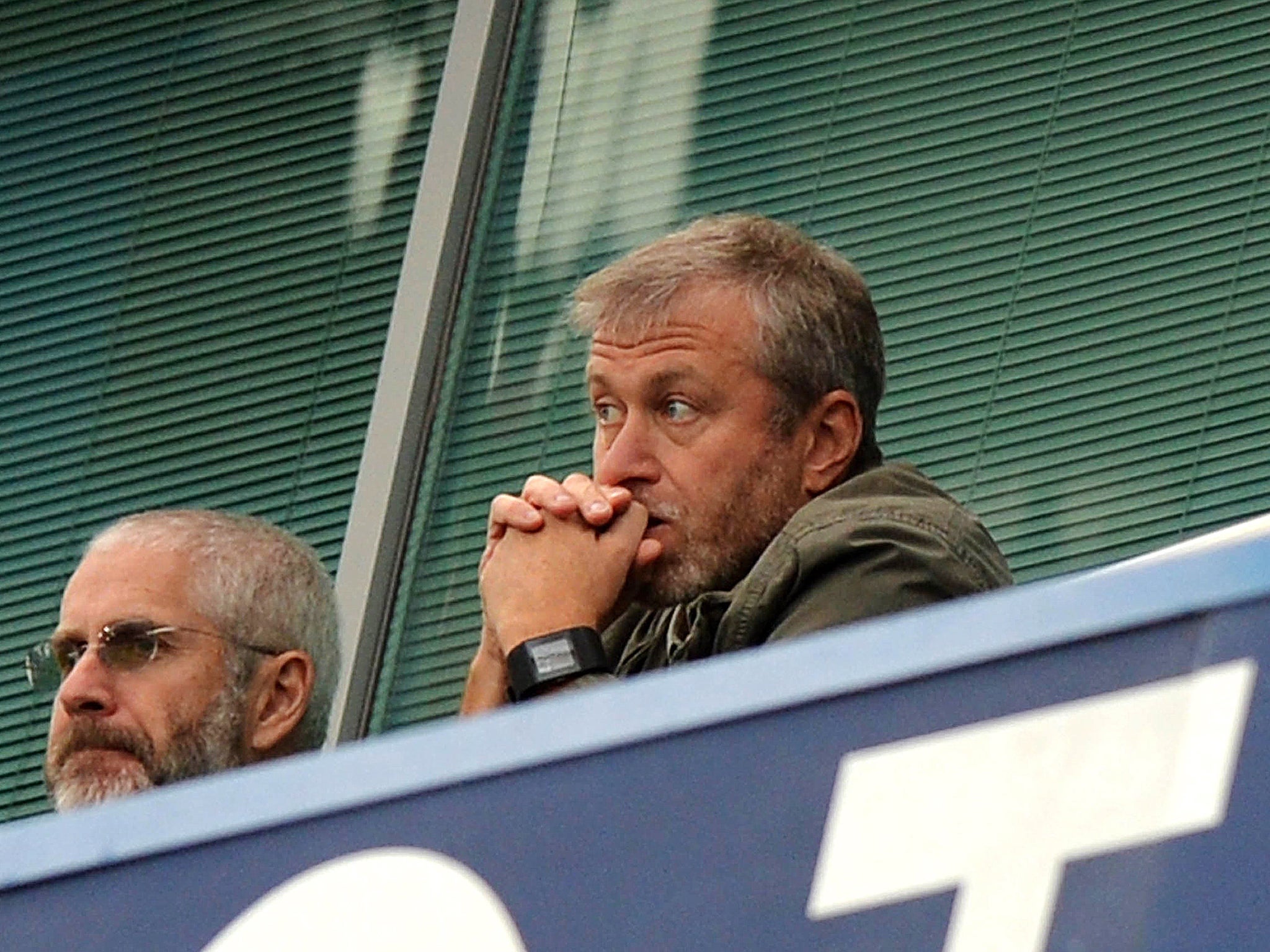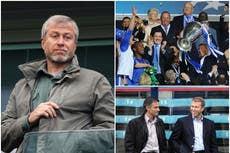There has rarely been a corporate exit as dramatic as that of Roman Abramovich
He may have changed English football forever, but he’s done a lot more than that, argues Chris Blackhurst


One minute he’s lord of all he surveys, the billionaire owner of the football champions of Europe, of the world, lauded for his brilliance and largesse. The next, he is gone.
In the long history of many corporate exits there has rarely been one so dramatic as Roman Abramovich’s from Chelsea. Sure, there have been rapid departures from boardrooms and fire sales. But this is the owner, the backer, of a club that was not in any trouble – far from it. Indeed, so keen is the Russian to extricate himself that he seems prepared to take a hit on the £1.5bn he loaned during his almost 20-year reign.
Faced with Russia’s invasion of Ukraine other oligarchs suspected of enjoying ties to the Kremlin find themselves in a similar position, threated with sanctions and vilified by politicians and media. Yet they have not acted so quickly and decisively as Abramovich.
Given Chelsea’s success and the devotion of the fans, he could have held out for longer. Football after all, is a sport not known for doing much in a hurry, certainly where powerful Premiership owners are concerned.
Doubtless his lawyers would have argued that to purchase Chelsea, Abramovich passed a “fit and proper” test. During his period in charge, his record was untarnished, he did not cause offence but remained in the background, happy to observe his team at a distance. He changed managers frequently, it’s true, but he was not alone in that. Indeed, many proprietors would have done the same, except they did not have the cash to fund the inevitable payoffs.
There was sniping, that here was a club that had bought his way to trophies. Again, though, Chelsea was hardly on its own.
So, why the speed, why the spectacular reversal? First, governments were moving against Abramovich, as they are against all those thought to be close to Vladimir Putin. He will be made subject to sanctions and once they come into force selling the club becomes much more difficult. And, as the owner of one of the most glamorous clubs in a game that touches billions across the globe, he is a middle-aged pin-up of sorts, a poster boy if you will, for the new breed of investors. Abramovich was the one, the person who, whenever wealthy club bosses were mentioned, would be cited immediately. No list of billionaire Russians, no article about them, was ever complete without his inclusion.
Second though, and crucially, Abramovich was bang to rights. Last Thursday, Chris Bryant, the Labour MP, used House of Commons privilege to quote a Home Office paper written in 2019, after the novichok poisoning in Salisbury of the former Russian spy Sergei Skripal. “As part of HMG’s [Her Majesty’s Government’s] Russia strategy aimed at targeting illicit finance and malign activity, Abramovich remains of interest to HMG due to his links to the Russian state and his public association with corrupt activity and practices,” the document noted. Then, it said this: “An example of this is Abramovich admitting in court proceedings that he paid for political influence.”
The irony now is that Abramovich’s defence, based on admitting his corruption and how it bought him access and influence, has returned to haunt him
That’s the killer fact, his admission in court that Abramovich bought political influence. Speculation can surround Russian billionaires, so-and-so can be described as allied to Putin or a member of his inner circle. By and large, they are nowhere near as high profile as the Chelsea owner and there is little hard evidence.
Abramovich was sued in the High Court in London in 2012 by his late associate Boris Berezovsky. The two super-wealthy alpha males went head-to-head, supported by phalanxes of the English legal system’s finest. Berezovsky argued that he and Abramovich had a partnership agreement to share the vast profits generated by the Russian oil company Sibneft. The oil giant belonged to Abramovich, but Berezovsky maintained they had struck a sharing pact.
Abramovich’s defence, led by Jonathan Sumption QC, later a Supreme Court judge, and back then reputed to be the highest-earning member of the Bar, was that there was no formal deal and that Abramovich did pay Berezovsky $2bn but that was for political protection and influence.
During the hearing, it was explained (and the judge, Mr Justice Gloster, accepted) that Russia in the 1990s was “not governed by the rule of law”. Ambitious people needed “krysha”, Russian for paying criminals for physical protection, later widened to include protection provided by politicians and bureaucrats.
“It was Mr Abramovich’s case that the relationship between Mr Berezovsky and himself was founded principally on political krysha, or protection,” the judgment stated. “He claimed that the relationship with Mr Berezovsky included … an element of physical, as well as political, protection.”
The judge noted: “It was also Mr Abramovich’s case that the lobbying activities of Mr Berezovsky, as a protector providing political krysha for Mr Abramovich, were inherently corrupt; and that, likewise, the deal between the two men, whereby Mr Abramovich agreed to pay Mr Berezovsky for his krysha services, was also corrupt. Mr Sumption accepted that Mr Abramovich was privy to that corruption but submitted that the reality was that that was how business was done in Russia in those times.”
Says the judgment: “Mr Abramovich enjoyed very good relations with President Putin and others in power at the Kremlin. It was also clear that Mr Abramovich had privileged access to President Putin, in the sense that he could arrange meetings and discuss matters with him.”
It was a victorious Abramovich who emerged, having saved the $5bn claimed by Berezovsky.
The case lay there until a Home Office official paid it a revisit. The irony now is that Abramovich’s defence, based on admitting his corruption and how it bought him access and influence, has returned to haunt him. It may cost him much more than $5bn. It’s already seen him lose Chelsea, but the final bill could be something intangible and far greater: his reputation.
Join our commenting forum
Join thought-provoking conversations, follow other Independent readers and see their replies
Comments



Bookmark popover
Removed from bookmarks